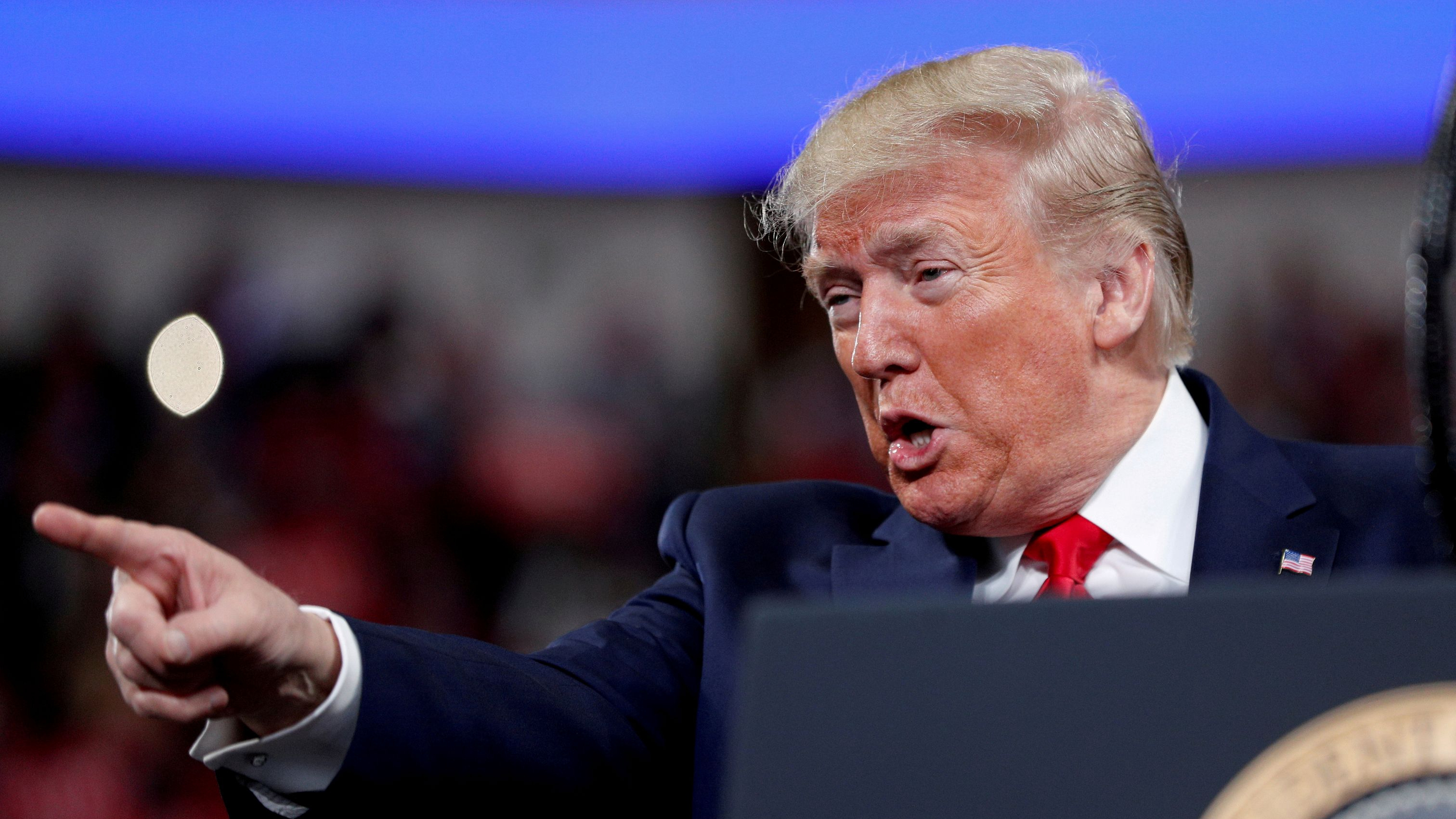The U.S. Supreme Court has agreed to hear cases in March 2020 involving the release of President Donald Trump's tax returns and financial records, setting the stage for a potential blockbuster ruling during the presidential election campaign.
Trump has been seeking to block access to his tax returns, bank statements and other records in cases brought by New York prosecutors and Democratic-controlled committees in the House of Representatives.
The House probes are not part of the Democratic-led impeachment proceedings against Trump over his dealings with Ukraine.
What's happened so far?
Lower courts have ruled that Trump must turn over the documents, but lawyers for the president argue that he has blanket immunity.
The cases are a test for how the justices view Trump's arguments that the subpoenas are a threat to the presidency, on the one hand, and the need for lawmakers or prosecutors for information to pursue legislation or criminal investigations on the other.

U.S. President Donald Trump delivers remarks during a campaign rally at the Giant Center in Hershey, Pennsylvania, U.S., December 10, 2019. /Reuters Photo
U.S. President Donald Trump delivers remarks during a campaign rally at the Giant Center in Hershey, Pennsylvania, U.S., December 10, 2019. /Reuters Photo
The Supreme Court announced on Friday it will hear arguments in March with a decision to be issued before the court session ends June 30. Neil Gorsuch and Brett Kavanaugh, two of the five conservative justices on the nine-member court, were appointed by Trump.
A Supreme Court ruling in the case would come less than six months before Americans go to the polls in November.
Trump is the first U.S. president since Richard Nixon not to make his tax returns public. He promised to do so during the 2016 presidential campaign, but has since insisted the records are under audit by the Internal Revenue Service and can't be released.
What are the three cases?
One of the Trump cases is his appeal of a lower court ruling allowing a New York grand jury to subpoena his accounting firm Mazars LLP for his records.
Manhattan District Attorney Cyrus Vance Jr has demanded Trump's tax returns dating back to 2011 as part of an investigation into payments made by Michael Cohen, the president's former personal attorney, to Stormy Daniels, an adult film actress who claimed to have had a sexual liaison with Trump before he ran for president.
Trump's attorneys said prosecutors could be encouraged to investigate a president to advance their careers or score political points if that subpoena is enforced.
Another case concerns a lower court decision in Washington that endorsed subpoenas issued by the Democratic-led House Oversight Committee to Mazars. Trump's lawyers say there was no legislative purpose for the subpoenas and that the aim was merely to dig for dirt on the president.
In the third case, the justices will review a lower court ruling allowing the enforcement of separate House committee subpoenas targeting Trump-related financial records from Deutsche Bank AG and Capital One Financial Corp.
(With input from agencies)